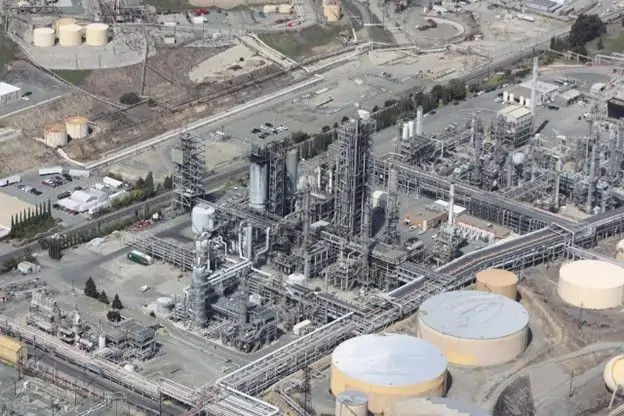
In the energy sector, the term artificial intelligence or “AI” is becoming more and more common, and its potential importance is being examined more than ever. By enabling effective decision-making processes and real-time insights into asset performance, AI technology is starting to change the energy business across North America and beyond.

Energy firms can now optimize operations, minimize downtime, cut costs, enhance safety protocols, and make better forecasts about future trends by incorporating AI algorithms. North America is one of the industry leaders in this area, with many organizations making significant investments in cutting-edge technology that use AI to positively impact their operations.
Successful AI adoption can help revolutionize the industry for years to come, from enhancing drilling procedures to reducing environmental concerns linked with oil spills or gas leaks. For instance, larger oil firms like ExxonMobil and Chevron are using AI-powered sensors to track their drilling machinery in real-time and foresee possible issues before they arise. This decreases downtime while also enhancing safety protocols by averting mishaps brought on by malfunctioning machinery.
Challenges of implementing AI
Since its inception, the energy sector has been renowned for its intricate processes, extensive infrastructure, and highly trained staff. However, it seems that the current workforce is finding it difficult to keep up with AI’s constant technological developments, specifically, there seems to be a lack of workers skilled to manage complex AI-driven projects. Furthermore, there seems to be some resistance from workers who feel threatened by the potential automation of their jobs.

This leads us to our next challenge – the high cost of AI technology. As these new technologies are incredibly costly to develop and implement effectively into existing systems, companies face yet another obstacle in adopting them completely into their work processes. It’s like having a pricey toy without anyone who knows how it works! However, the long-term benefits of adopting AI technology, such as increased efficiency and productivity, can outweigh the initial costs and ultimately lead to cost savings for companies.
Another critical issue preventing widespread adoption of AI within the energy sector is resistance from traditionalists towards changing long-standing practices that have served well over generations but lack flexibility when it comes down to embracing modern trends. For example, a manufacturing company can use AI-powered robots to automate their assembly line. Although the initial investment may be high, the company will benefit from increased production speed and accuracy, leading to cost savings in the long run.
In addition to the financial costs, there are also ethical considerations that come with implementing AI technology. One of the biggest concerns is the potential loss of jobs as machines become more capable of performing tasks that were once completed by humans. This may lead to significant social and economic impacts, particularly in industries that rely heavily on manual labor. Companies must carefully consider the ethical implications of their AI implementations and work to mitigate any negative effects. Furthermore, there is also the issue of data privacy and security, as AI systems often rely on vast amounts of sensitive information to operate effectively.
In summary, these challenges pose significant hurdles for organizations trying to incorporate artificial intelligence into their core business processes.
Opportunities of AI
Companies can identify previously unknown reservoirs and streamline drilling processes by leveraging machine learning algorithms on massive amounts of geological data. Furthermore, better predictive maintenance systems enabled by AI may provide an unrivaled advantage in reducing downtime and, ultimately, lowering costs. Using smart sensors to collect real-time performance data from machines such as pumps or compressors enables operators to perform preventative maintenance before equipment failures occur, ensuring maximum uptime for your facility.

Furthermore, enhancing safety measures remains a top priority in this industry. Employees have access to highly realistic training scenarios using AI-powered technology such as some digital twins or simulation models, which prepare them for mostly hazard-free work environments while providing valuable feedback on their performance under stressful conditions.
Overall, it is evident that AI will have a big impact on how we explore our natural resources more effectively in ways that were previously unimaginable, opening up new areas where energy sources were previously unreachable and expediting the sustainable transition to a cleaner future. There are many chances for energy firms to apply artificial intelligence, notwithstanding the difficulties. In the exploration and production processes, AI can help raise productivity, reduce costs, and promote safety.
Additionally, AI can assist with preventative maintenance, enabling companies to identify and deal with potential equipment faults before they happen. AI can also help with data analysis, offering insightful data that can be utilized to guide decisions and improve operations. In general, artificial intelligence has a lot to offer the energy sector, making it a feasible option.
Case studies of AI implementation
- ExxonMobil’s use of AI for drilling optimization
ExxonMobil has optimized drilling operations using AI, which has led to significant cost reductions and improved productivity. There AI system examines drilling data in real-time to find trends and forecast outcomes, enabling proactive adjustments to be made before issues develop. As a result, safety has improved, downtime has decreased, and production rates have increased.
- Chevron’s use of AI for maintenance planning
Chevron reduced drilling time by 30% and drilling costs by 50% by using artificial intelligence to optimize drilling operations. Additionally, Chevron has been able to reduce downtime and preventative maintenance by identifying probable equipment faults before they happen thanks to artificial intelligence. These accomplishments show how AI has the ability to completely transform the energy sector.
- BP’s adoption of AI for facility safety and risk management
Artificial intelligence has been employed by BP to continuously evaluate safety hazards and, if necessary, take fast action. AI has also been used to analyze data from a variety of sources in an effort to better risk management techniques and identify potential risks. The energy industry has the potential to benefit from increased efficiency and safety thanks to these AI applications.
Outlook and potential of AI
The energy industry has always been known for its high-risk, complex operations. However, with the advent of AI, previously unthinkable opportunities have become reality. AI’s improved exploration and production efficiency is one such opportunity. Companies can identify previously unknown reservoirs and streamline drilling processes by leveraging machine learning algorithms on massive amounts of geological data.
Furthermore, better predictive maintenance systems enabled by AI provide an unrivaled advantage in reducing downtime and, ultimately, significantly lowering costs. Using smart sensors to collect real-time performance data from machines such as pumps or compressors enables operators to perform preventative maintenance before equipment failures occur, ensuring maximum uptime for facilities.
Enhancing safety measures also remains a top priority in this industry. Employees have access to highly realistic training scenarios using AI-powered technology such as some digital twins or simulation models, which prepare them for completely hazard-free work environments while providing valuable feedback on their performance under stressful conditions.
Overall, it is clear that AI will play a significant role in shaping how we explore our natural resources more efficiently in ways never thought possible , opening up new horizons where energy sources were previously unreachable and accelerating the sustainable transition to a cleaner future.
Looking to implement AI into your business?
Vista Projects is an integrated engineering services firm able to assist with your system integration and engineering projects. With offices in Calgary, Alberta, Houston, Texas, and Muscat, Oman, we help clients with customized system integration and engineering consulting across all core disciplines. Contact us today!
Share This:



